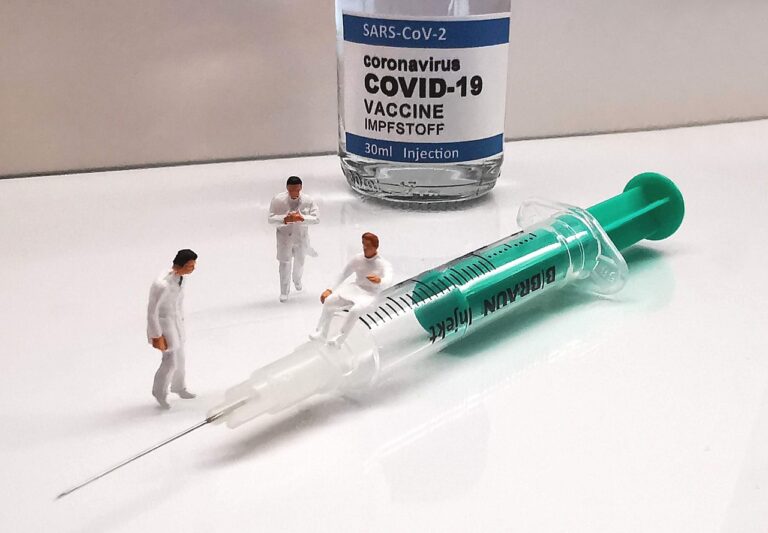Fertility Preservation Options for Men with Klinefelter Syndrome
allexch login app, 99 exch, all panel login: Fertility preservation options for men with Klinefelter Syndrome are essential to consider, as this genetic condition can impact a man’s ability to produce sperm naturally. Klinefelter Syndrome is a chromosomal condition that affects males and is characterized by the presence of an extra X chromosome. Men with Klinefelter Syndrome typically have smaller testes and lower testosterone levels, which can lead to infertility. However, with advancements in reproductive technology, there are several options available to help preserve fertility for men with Klinefelter Syndrome.
Sperm Banking
One of the most common fertility preservation options for men with Klinefelter Syndrome is sperm banking. Sperm banking involves collecting and freezing sperm for future use. This allows men to preserve their sperm before any potential decline in fertility due to Klinefelter Syndrome. Sperm banking is a straightforward process that can be done at a fertility clinic, and the frozen sperm can be used for assisted reproductive techniques such as in vitro fertilization (IVF) or intracytoplasmic sperm injection (ICSI).
Testicular Sperm Extraction (TESE)
For men with Klinefelter Syndrome who are unable to produce viable sperm naturally, testicular sperm extraction (TESE) may be an option. TESE involves retrieving sperm directly from the testes through a surgical procedure. The retrieved sperm can then be used for IVF or ICSI. TESE is a more invasive procedure than sperm banking, but it can be an effective option for men with Klinefelter Syndrome who still have some sperm production in their testes.
Hormone Therapy
Hormone therapy may also be recommended for men with Klinefelter Syndrome to help improve sperm production and fertility. Testosterone replacement therapy can help increase testosterone levels, which can in turn improve sperm production. Other hormonal medications may also be prescribed to stimulate sperm production in men with Klinefelter Syndrome. Hormone therapy can be used in conjunction with other fertility preservation options to maximize the chances of successful fertility preservation.
Donor Sperm
In cases where fertility preservation options are not successful or feasible, using donor sperm may be an alternative option for men with Klinefelter Syndrome. Donor sperm can be used for IVF or ICSI to achieve a successful pregnancy. While using donor sperm may not preserve the genetic material of the man with Klinefelter Syndrome, it can still allow him to become a father.
Adoption
Adoption is another option for men with Klinefelter Syndrome who are unable to preserve their fertility or achieve pregnancy through other means. Adoption can be a rewarding way for men with Klinefelter Syndrome to build their families and become parents. While adoption does not involve biological parenthood, it can still provide a fulfilling parenting experience.
Conclusion
Fertility preservation options for men with Klinefelter Syndrome are important considerations for those who wish to preserve their fertility and have biological children. Sperm banking, TESE, hormone therapy, donor sperm, and adoption are all possible options for men with Klinefelter Syndrome to explore. By discussing these options with a fertility specialist, men with Klinefelter Syndrome can make informed decisions about their reproductive future.
FAQs
1. Can men with Klinefelter Syndrome have children naturally?
Men with Klinefelter Syndrome may have impaired fertility due to lower testosterone levels and smaller testes. However, with advancements in reproductive technology, there are options available to help preserve fertility and achieve pregnancy.
2. What is the success rate of fertility preservation options for men with Klinefelter Syndrome?
The success rate of fertility preservation options for men with Klinefelter Syndrome can vary depending on individual factors such as age, overall health, and the severity of the condition. It is important to consult with a fertility specialist to discuss the best options for each specific case.
3. Are there any risks or side effects associated with fertility preservation options for men with Klinefelter Syndrome?
There may be some risks and side effects associated with fertility preservation options such as TESE or hormone therapy. It is essential to discuss these risks with a healthcare provider before undergoing any procedures.
4. Can men with Klinefelter Syndrome explore multiple fertility preservation options simultaneously?
Yes, men with Klinefelter Syndrome can explore multiple fertility preservation options simultaneously or sequentially based on their individual preferences and goals. It is important to work closely with a fertility specialist to develop a personalized fertility preservation plan.
In conclusion, fertility preservation options for men with Klinefelter Syndrome can help empower individuals to make informed decisions about their reproductive future. By exploring these options and working closely with a healthcare provider, men with Klinefelter Syndrome can take steps towards preserving their fertility and achieving their dream of becoming parents.







